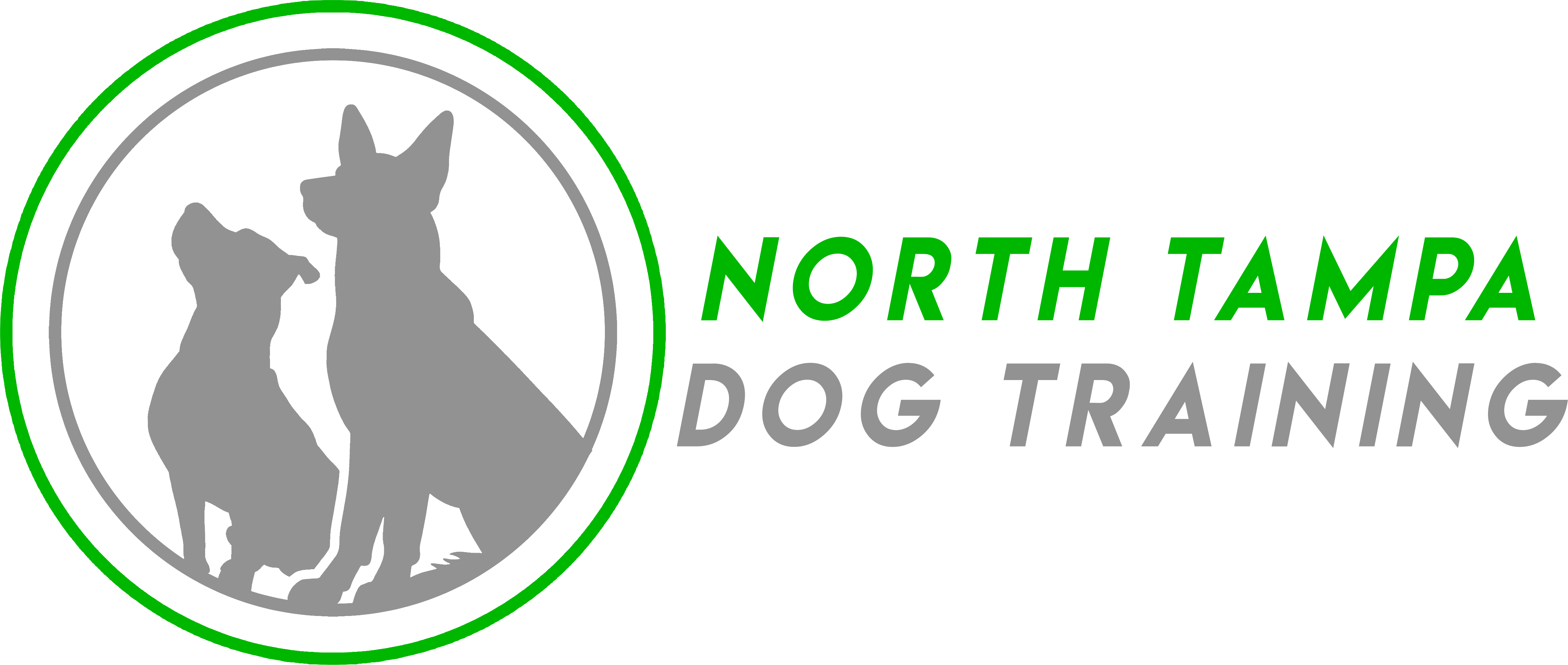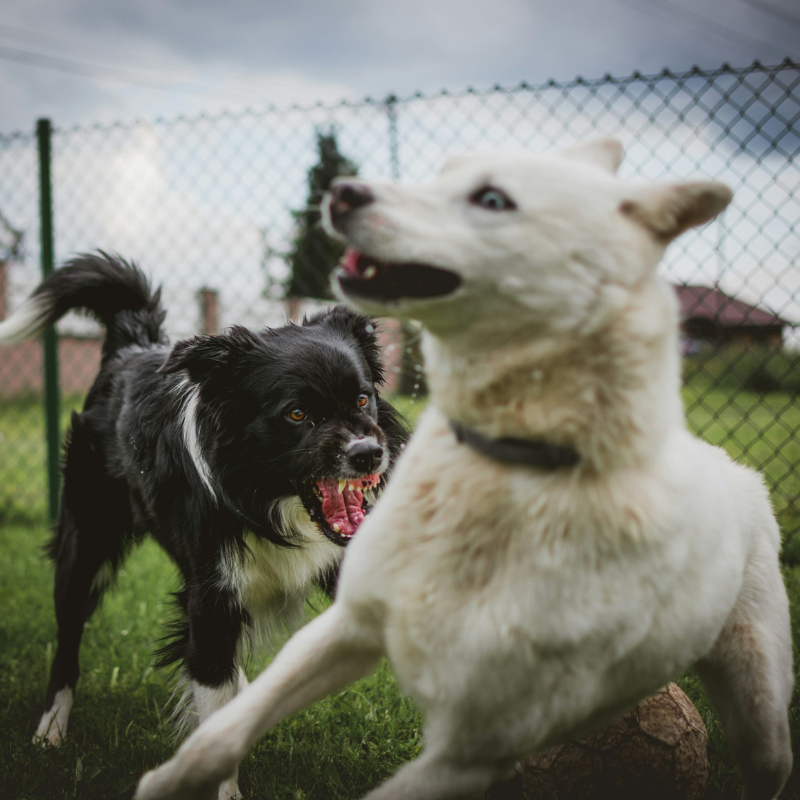Aggression in dogs can manifest in various forms and can be driven by multiple factors. Understanding the roots of aggression and creating tailored training plans is essential. Here, at our facility for dog aggression training in Carrollwood, we specialize in addressing complex behavioral issues, ensuring your pet receives the most effective obedience training for dogs in Carrollwood has to offer.
Creating a Training Plan for Dogs with Multiple Types of Aggression
Aggression in dogs isn’t just a single behavioral issue; it can arise from fear, territorial instincts, possessiveness, and more. Dealing with multiple types of aggression requires a nuanced approach, which starts with a comprehensive assessment by a professional dog trainer. Here’s how we create a multi-faceted training plan:
- Initial Assessment: Understanding the dog’s history, triggers, and environment to identify the types of aggression exhibited. This involves detailed observations and interactions to ensure a complete behavioral profile is developed.
- Customized Training Techniques: Combining positive reinforcement with structured discipline to address each type of aggression. Techniques might include desensitization exercises, controlled socialization, and command reinforcement. We tailor these techniques based on the dog’s specific needs and progress, ensuring each session builds on the last.
- Consistency and Patience: Regular sessions and consistent commands are crucial to help the dog learn appropriate behaviors and reduce aggressive responses. This also involves training the owners to understand and maintain these practices.
- Owner Involvement: Educating owners on how to maintain and reinforce training at home, which is vital for long-term success. Workshops and hands-on sessions are provided to ensure owners feel confident and equipped.
Here’s a breakdown of each type of aggression in dogs, which can help understand their behaviors and inform the appropriate training or intervention methods:
Fear-Based Aggression
- Definition: Fear-based aggression occurs when a dog perceives a threat to its safety and reacts defensively. It is typically triggered by something that makes the dog feel cornered, threatened, or uncomfortable.
- Signs: Growling, snapping, or biting when approached or touched, especially in unfamiliar or intimidating situations.
- Management: Training focuses on building the dog’s confidence through positive reinforcement and desensitization techniques. Avoiding or carefully managing situations that trigger fear can prevent aggressive responses.
Territorial Aggression
- Definition: This type of aggression is displayed when a dog believes its territory (which could include your home, yard, or even a vehicle) is being invaded by strangers or unfamiliar animals.
- Signs: Barking, lunging, or biting when outsiders approach the dog’s perceived territory.
- Management: Effective management includes training the dog to obey commands to stop barking or aggressive behaviors on cue, using positive reinforcement to reward non-aggressive behavior, and slowly desensitizing the dog to the presence of strangers within its territory.
Possessive Aggression (Resource Guarding)
- Definition: Possessive aggression, or resource guarding, involves a dog displaying aggressive behaviors to protect resources it values, such as food, toys, or even people.
- Signs: Growling, snapping, or biting when someone approaches its food bowl, favorite toy, or a person the dog is particularly attached to.
- Management: Training involves teaching the dog to trust that giving up its resources will result in something better. Techniques like “drop it” commands, trading up for better items, and ensuring that the dog feels secure in its environment can reduce possessive tendencies.
Each type of dog aggression requires a subtle approach tailored to the individual dog’s circumstances and triggers. Understanding the root cause of aggression is important for implementing effective training strategies and ensuring safety.
The Role of Medications and Supplements in Managing Aggression
While training forms the foundation of managing aggression, certain cases may benefit from medical intervention:
- Veterinary Consultation: Before considering any medications, a thorough veterinary examination is essential to rule out pain-related aggression or physiological issues that could be contributing to aggressive behavior.
- Medications: In some cases, veterinarians may prescribe medications to help manage aggression. These are generally used as a short-term solution to help reduce the intensity of the dog’s reactions during the training process, making them more receptive to behavior modification techniques.
- Natural Supplements: Supplements like CBD oil or calming chews can also be used to help soothe anxiety, which can be a component of aggressive behavior. However, their effectiveness can vary, and they should be used in conjunction with a comprehensive training plan. We explore the latest research and consult with veterinarians to recommend the best options.
Case Studies: Success Stories from Odessa
- Max’s Journey: A case of a mixed-breed dog showing territorial and fear aggression. Through a tailored plan that included exposure therapy and command training, Max learned to trust his environment and reduce his aggressive outbursts.
- Bella’s Transformation: Bella, a rescue with a history of possessive aggression, benefited from a combination of medication to ease her anxiety and intensive behavioral training, helping her become a calmer, more sociable dog. These stories highlight the transformative power of integrated approaches that cater to the individual needs of each dog.
Addressing dog aggression with a comprehensive strategy that includes both behavioral training and, when necessary, medical intervention, can transform an aggressive dog into a well-behaved companion. Our programs for dog aggression training and obedience training for dogs in Carrollwood are designed to address the unique needs of each dog, considering all possible tools, from advanced training techniques to supportive medications and supplements. With the right approach, every dog can learn to navigate their world more peacefully, leading to a better life for both pets and their owners. Want to learn more? Contact us today.

